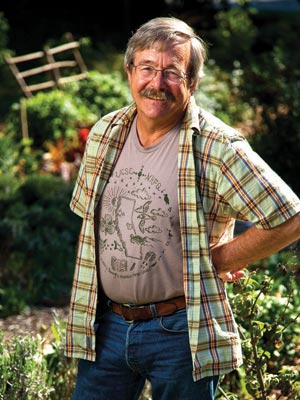Original Thinkers
Steve Gliessman: Roots of agroecology extend deeply at UC Santa Cruz
 Steve Gliessman literally wrote the book on agroecology.
Steve Gliessman literally wrote the book on agroecology.
The term dates back to the late 1920s, but when Gliessman and two Mexican colleagues began using it nearly 40 years ago they pronounced it in Spanish: “agroecología.”
Gliessman was teaching at the Colegio Superior de Agricultura Tropical in Tabasco, Mexico, and studying traditional Mayan techniques that form the foundation of sustainable small-scale farming that respects land, farmers, and culture.
He joined the UC Santa Cruz environmental studies faculty in 1980 and founded the UC Santa Cruz Agroecology Program. By 1997, he had written Agroecology: The Ecology of Sustainable Food Systems, a textbook for small-scale sustainable agriculture programs.
Today, agroecology is an interdisciplinary concept that extends beyond organic farming, and is widely known and taught in universities (often using Gliessman’s textbook) across the nation and around the world.
“Steve is one of the pioneers and founders of agroecology worldwide,” said professor Miguel Altieri at UC Berkeley’s Department of Environmental Science, Policy and Management. “His influence has been enormous.”
Today, Gliessman, is retired after holding the first endowed chair at UC Santa Cruz, the Ruth and Alfred E. Heller Chair in Agroecology. But he hasn’t slowed down. He continues as editor of Agroecology and Sustainable Food Systems.
Sustainability, as Gliessman defines it, is an approach to life based on treating the land in an ecologically sound way. It must also encompass a just system socially and economically that treats people, land, animals, and water in “a way that lasts forever.”
“It’s about healthy food, healthy land, and healthy people,” he says, “and it’s going to require some social changes.
“Social change doesn’t happen overnight,” Gliessman notes. The goal, he says, “is to create transformative action and a whole new way of thinking about the entire food system.”